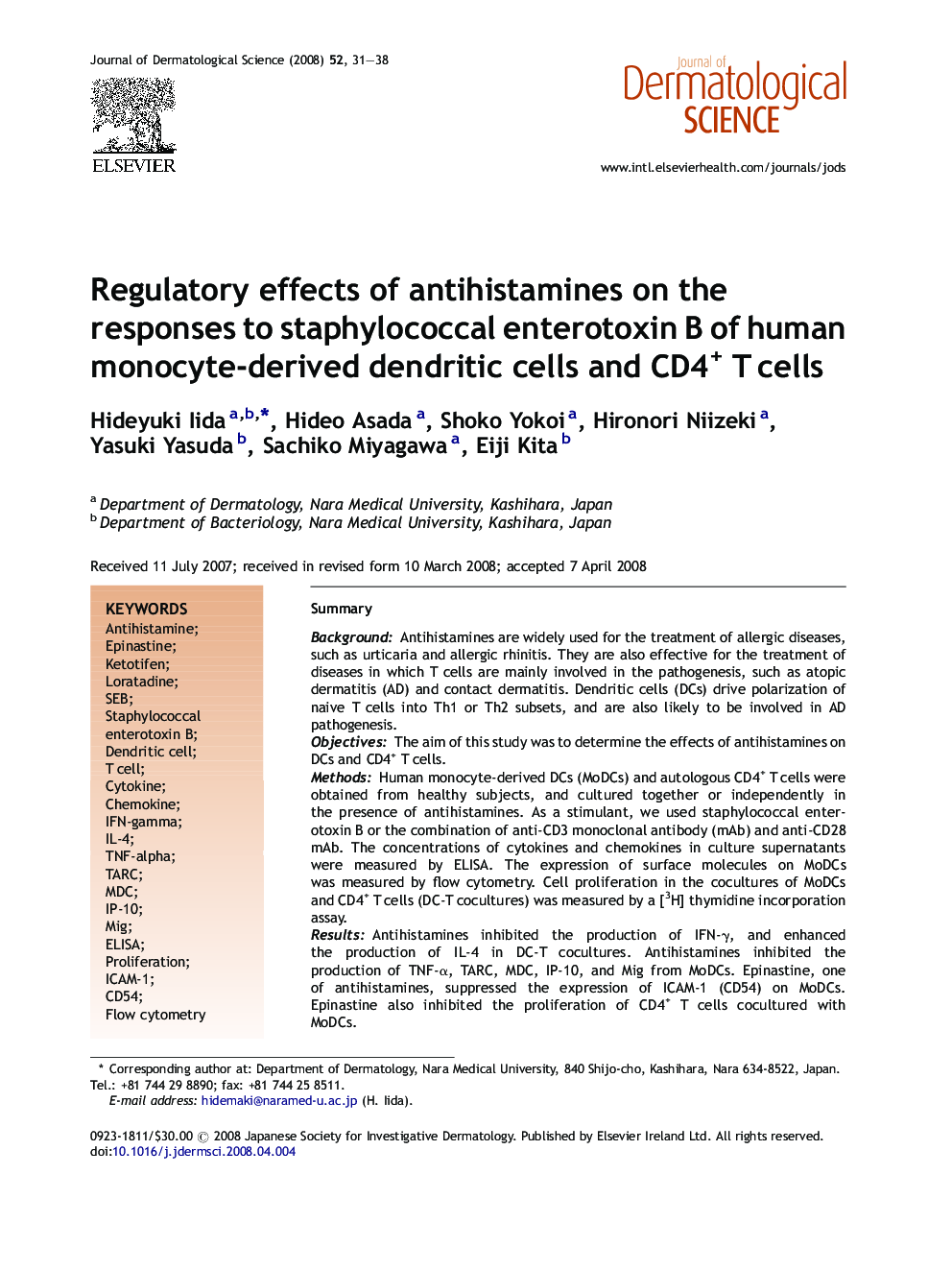| کد مقاله | کد نشریه | سال انتشار | مقاله انگلیسی | نسخه تمام متن |
|---|---|---|---|---|
| 3214131 | 1203270 | 2008 | 8 صفحه PDF | دانلود رایگان |

SummaryBackgroundAntihistamines are widely used for the treatment of allergic diseases, such as urticaria and allergic rhinitis. They are also effective for the treatment of diseases in which T cells are mainly involved in the pathogenesis, such as atopic dermatitis (AD) and contact dermatitis. Dendritic cells (DCs) drive polarization of naive T cells into Th1 or Th2 subsets, and are also likely to be involved in AD pathogenesis.ObjectivesThe aim of this study was to determine the effects of antihistamines on DCs and CD4+ T cells.MethodsHuman monocyte-derived DCs (MoDCs) and autologous CD4+ T cells were obtained from healthy subjects, and cultured together or independently in the presence of antihistamines. As a stimulant, we used staphylococcal enterotoxin B or the combination of anti-CD3 monoclonal antibody (mAb) and anti-CD28 mAb. The concentrations of cytokines and chemokines in culture supernatants were measured by ELISA. The expression of surface molecules on MoDCs was measured by flow cytometry. Cell proliferation in the cocultures of MoDCs and CD4+ T cells (DC-T cocultures) was measured by a [3H] thymidine incorporation assay.ResultsAntihistamines inhibited the production of IFN-γ, and enhanced the production of IL-4 in DC-T cocultures. Antihistamines inhibited the production of TNF-α, TARC, MDC, IP-10, and Mig from MoDCs. Epinastine, one of antihistamines, suppressed the expression of ICAM-1 (CD54) on MoDCs. Epinastine also inhibited the proliferation of CD4+ T cells cocultured with MoDCs.ConclusionsOur findings show that antihistamines regulate immune responses by affecting the interaction between DCs and CD4+ T cells, and further DCs and CD4+ T cells independently, which may partially contribute to the control of allergic diseases such as AD and contact dermatitis.
Journal: Journal of Dermatological Science - Volume 52, Issue 1, October 2008, Pages 31–38